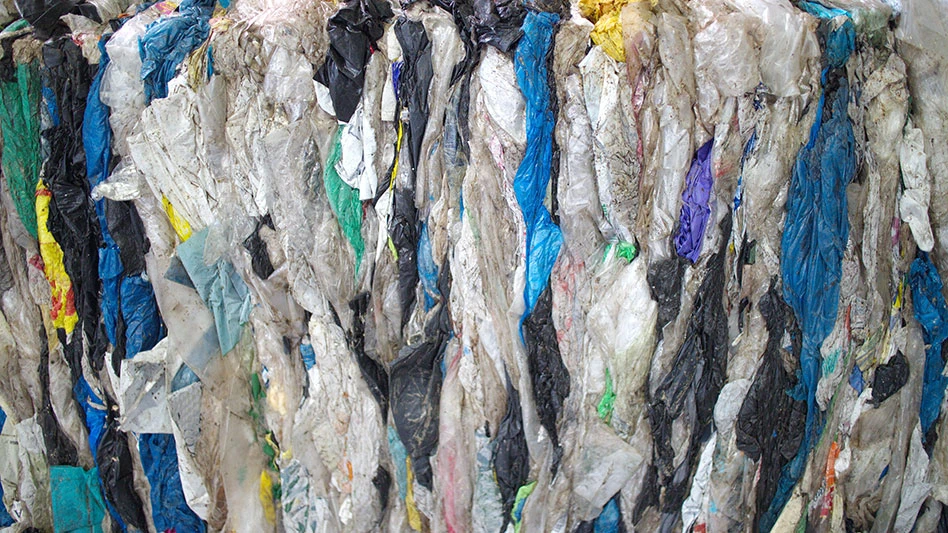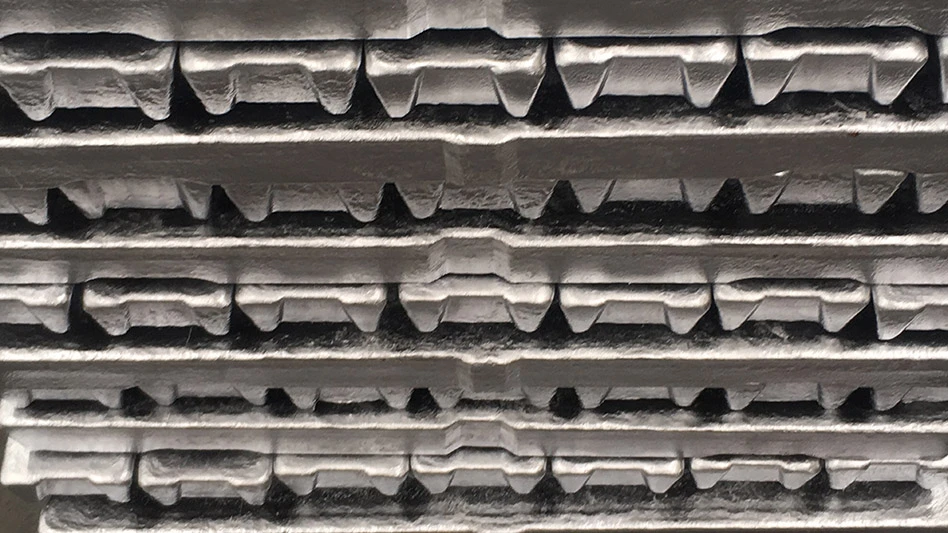
Andrey | stock.adobe.com
Producing new plastic using chemical or advanced recycling of postuse plastic (PUP) instead of fossil-based production can reduce greenhouse gas emissions (GHG) and increase the U.S. recycling rate, according to research by the U.S. Department of Energy’s (DOE) Argonne National Laboratory that was supported by the American Chemistry Council (ACC), Washington. The peer-reviewed life cycle analysis study appears in the November 2023 issue of Journal of Cleaner Production.
This is the first analysis of multiple U.S. facilities taking PUP all the way to new plastics, according to Argonne. Specifically, the new plastics are low-density and high-density polyethylene (LDPE and HDPE), and the recycling process used is pyrolysis, whereby plastics are heated to high temperatures in an oxygen-free environment. The main product is pyrolysis oil, a liquid mix of various compounds that can be an ingredient in new plastic. The oil can replace fossil ingredients like naphtha and gases to manufacture ethylene and propylene, which are two monomers, or building blocks, for plastic production, the lab explains.
The study collected operating data from eight companies with varying pyrolysis oil production processes from 2017-2021. The analysis shows an 18 percent to 23 percent decrease in GHG emissions when making plastic with just 5 percent pyrolysis oil from PUP compared with crude oil-derived LDPE and HDPE, respectively.
When factoring in current end-of-life practices for many plastics in the U.S., such as incineration, a further 40 percent to 50 percent reduction in GHG emissions is realized when manufacturing pyrolysis-based LDPE and HDPE, respectively, according to the analysis. Reductions are much higher (up to 131 percent) in the European Union as more PUP is incinerated currently, the study concludes.
“As advanced recycling becomes increasingly efficient, it is poised to play a major role in achieving global sustainability goals by reducing waste and GHG emissions,” says Argonne Principal Energy Systems Analyst Pahola Thathiana Benavides, a study author. “It can transform hard-to-recycle plastics into a multitude of high-value raw materials, reducing the need for fossil resources and potentially minimizing the environmental impact of waste management.”
Advanced recycling enables reliance on PUP to produce valuable industrial chemicals and develop markets for recycled plastic materials, Argonne National Laboratory says. Pyrolysis is one of the most common advanced technologies being implemented at industrial scale to convert PUP that cannot typically be turned into new products using other means.
While the Argonne researchers analyzed several different scenarios for pyrolysis oil used as a raw material for new plastic products (HDPE and LDPE), the most likely scenario of 5 percent recycled materials shows numerous other reductions when compared to virgin production:
- GHG emissions, 18 percent to 23 percent;
- fossil energy use, 65 percent to 70 percent;
- water use, 48 percent to 55 percent; and
- solid waste, 116 percent to 118 percent.
The study used Argonne’s Greenhouse Gasses Regulated Emissions and Energy use in Technologies (GREET) model, which has more than 55,000 users worldwide. According to Argonne, GREET is widely used by the DOE as well as multiple agencies including U.S. Environmental Protection Agency.
In addition to Benavides, Argonne Principal Energy Systems Analyst Uisung Lee, Energy Systems Analyst Ulises R. Gracida-Alvarez and Interim Energy Systems and Infrastructure Analysis Division Director Michael Wang contributed research to the project.
Latest from Recycling Today
- OnePlanet Solar Recycling closes $7M seed financing round
- AMCS launches AMCS Platform Spring 2025 update
- Cyclic Materials to build rare earth recycling facility in Mesa, Arizona
- Ecobat’s Seculene product earns recognition for flame-retardant properties
- IWS’ newest MRF is part of its broader strategy to modernize waste management infrastructure
- PCA reports profitable Q1
- British Steel mill subject of UK government intervention
- NRC seeks speakers for October event





